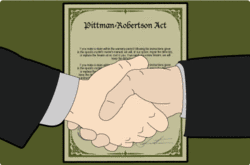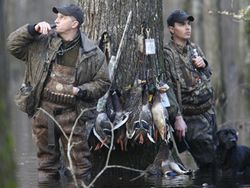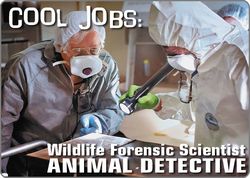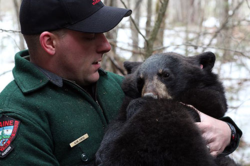
profiles hunters and wondered why they only want to have the
trophies?
It is always interesting to me to read
these news stories because they are some of the easiest for me to see
the author putting their own spin on.
It becomes even more clear when
you read the comment sections of these particular stories. All anyone
talks about is why it is disgusting that hunters only go for the
pretty or biggest deer and leave the meat. Today I read just such a
story Excuse me while I laugh my head off at the ignorance in the
world.
This is one of those rare instances
where I can be thankful that I decided to go to a college in Texas.
It seemed like every year when some hunting season came around I
would have to be on the look-out for wet spots. Many of my fellow
students and teachers would almost be salivating at the mere thought
of hunting.
Not for the sport, but for the stories, camaraderie with
friends, and more importantly the meat. I can not tell you how many
different recipes I heard over the years but suffice to say they all
sounded good.

wants the trophy is not only wrong, but hurting the wildlife
community as well. As I said in an earlier post, as of right now the
way that all state agencies get their finding from, for both
hunting and non hunting animals, is through tax laws that were put
into place year sago. The Pittmann-Robertson tax on fire arms and
ammunition, and the Dingell-Johnson tax on fishing supplies, are the
two biggest sources of funding for wildlife management, on all levels
of government.
What most surprises me is when you look
at the comments on stories like this. These people do not know the
history of wildlife, nor do they seem to realize that it is hunting
that has helped the survival of more species than they know.

how urbanization has done so much to destroy wildlife in general. The
theory that all hunters care about is trophies and killing has spread
to all parts of the United States and has become a stigma that no one
wants to even mention to friends. It might not seem like much but the
stigma of being a hunter has permeated to just about every part of
our society, to the point that the number of hunters has been going
down over the last decade.
Don't clap and start patting yourself
on the back. Do not forget that the states also get money from the
sale of hunting licenses and even lotteries to shot certain species –
there are cases of more people wanting to hunt them then there are
in the population of the animal. This money also goes into the fund
for wildlife restoration and protection. While it might not be as
much as states get from taxes, it is still a significant part of the
budget.

please do not forget that at one point in time the only way for
scientist sto get numbers on the populations of species was to keep a
record of what was shot from year to year. Even today that method is
still used because you can get a lot more information from the
carcass than you can a live animal. There was also a time when there
were no regulations on hunting either.
The important thing to remember is that
those who hunt properly, inside the law, are good people. When they
kill something, they eat it. They keep the trophy, just as you would
a souvenir from another country. They have pictures, just like you
do, but sometimes having something more tangible and real is more
meaningful than a picture. Not everyone is like Gaston from “Beauty
and the Beast.”
The people that you have to worry about
are the ones who do not hunt inside the law. Those are the people who
would rather go out and kill anything that moves, because they can.
Or they get a thrill from getting away with it under the law's nose.
You do not normally hear about them because they go out of their way
to avoid law enforcement.

National Geographic shows called Alaska State Trooper and Wild
Justice, or even Animal Planets North Woods Law. All three
have law enforcement that not only interact with wildlife but also
show the laws, rules, and regulations that must be followed.
Not only
that you can see for yourself from people who deal with this everyday
that there are people who represent both sides. Hunters who care
about the sport and the hunt itself, and those who just want to shoot
for fun.
NOTE: Robin Blankenhorn, TAMUK '13, is presently curating the urban wildlife policy space and seeking a career in the field. She would love your help in that effort.











Legal Hunting defense is necessary
Legal Hunting defense is necessary